Notes from Within:
REFLECTIONS ON HEALING, SPIRIT, AND THE BODY
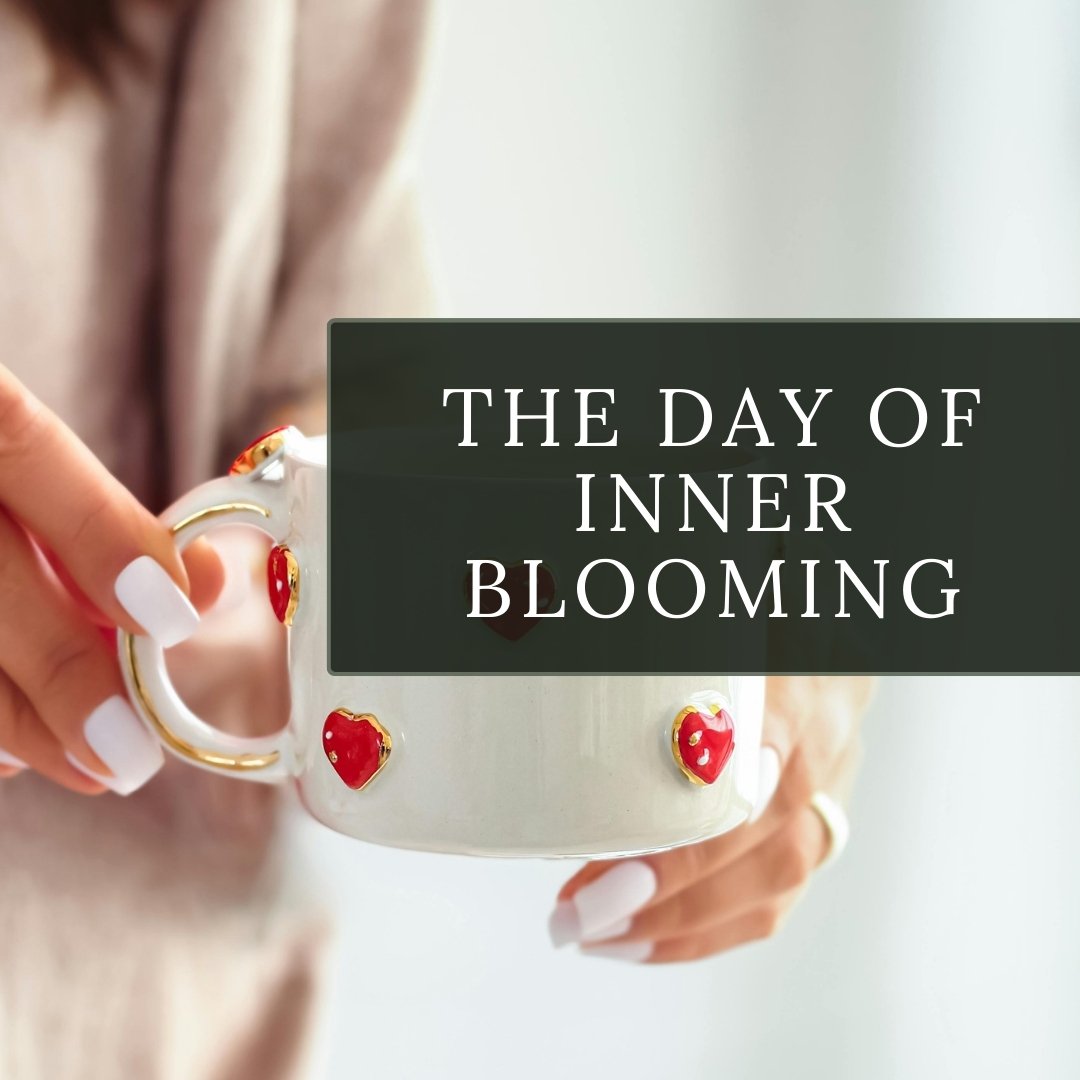
The Day of Inner Blooming
Valentine’s Day doesn’t have to be a performance. This gentle reflection offers a quieter way to practice love through presence, honesty, and inner devotion.
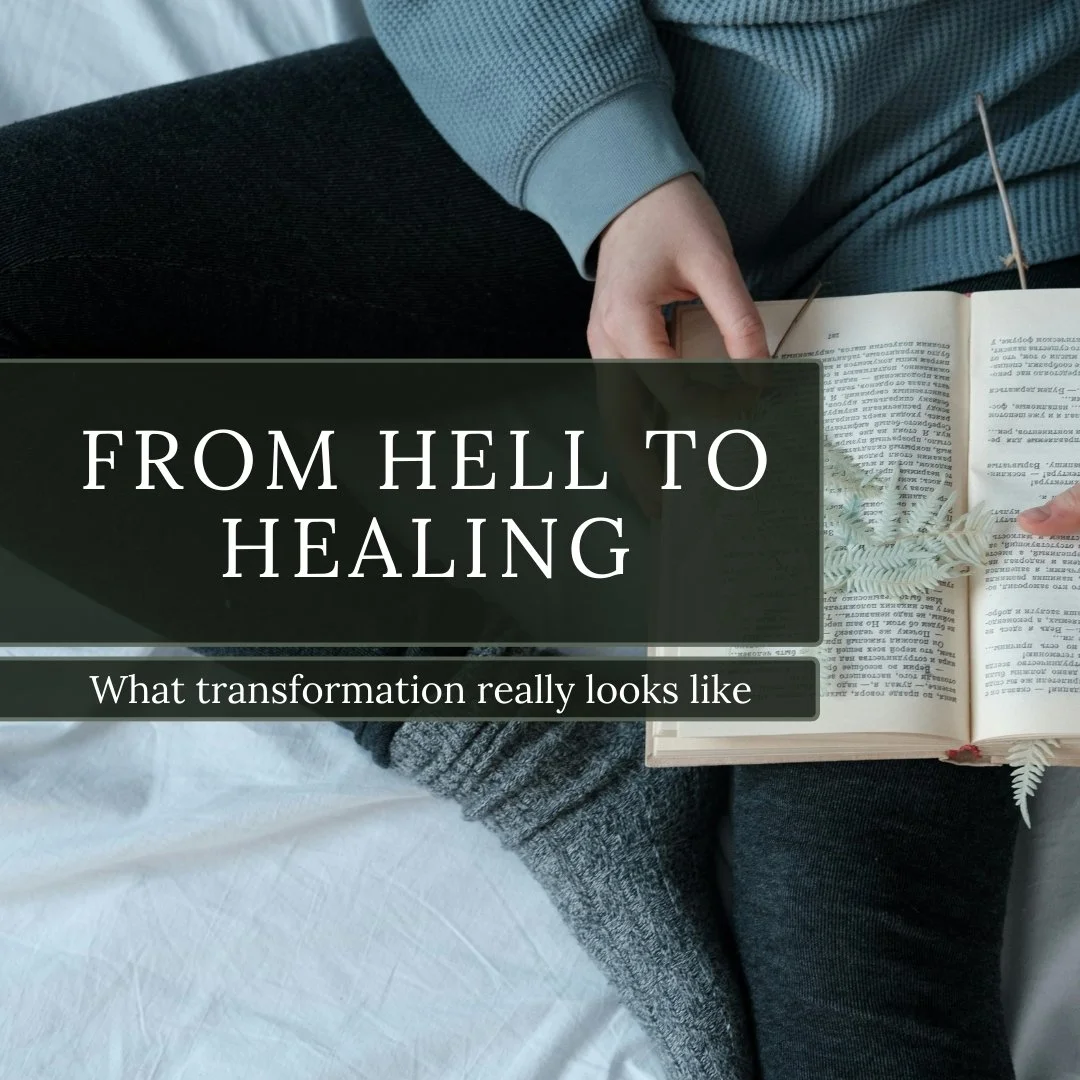
From Hell to Healing: What Transformation Actually Looks Like in Real Life
Healing doesn’t happen in a single breakthrough moment. It shows up quietly — in your breath, your boundaries, your sleep, and your ability to feel safe again. This post explores what real transformation looks like in everyday life, as the nervous system shifts from survival toward grounded, embodied healing.
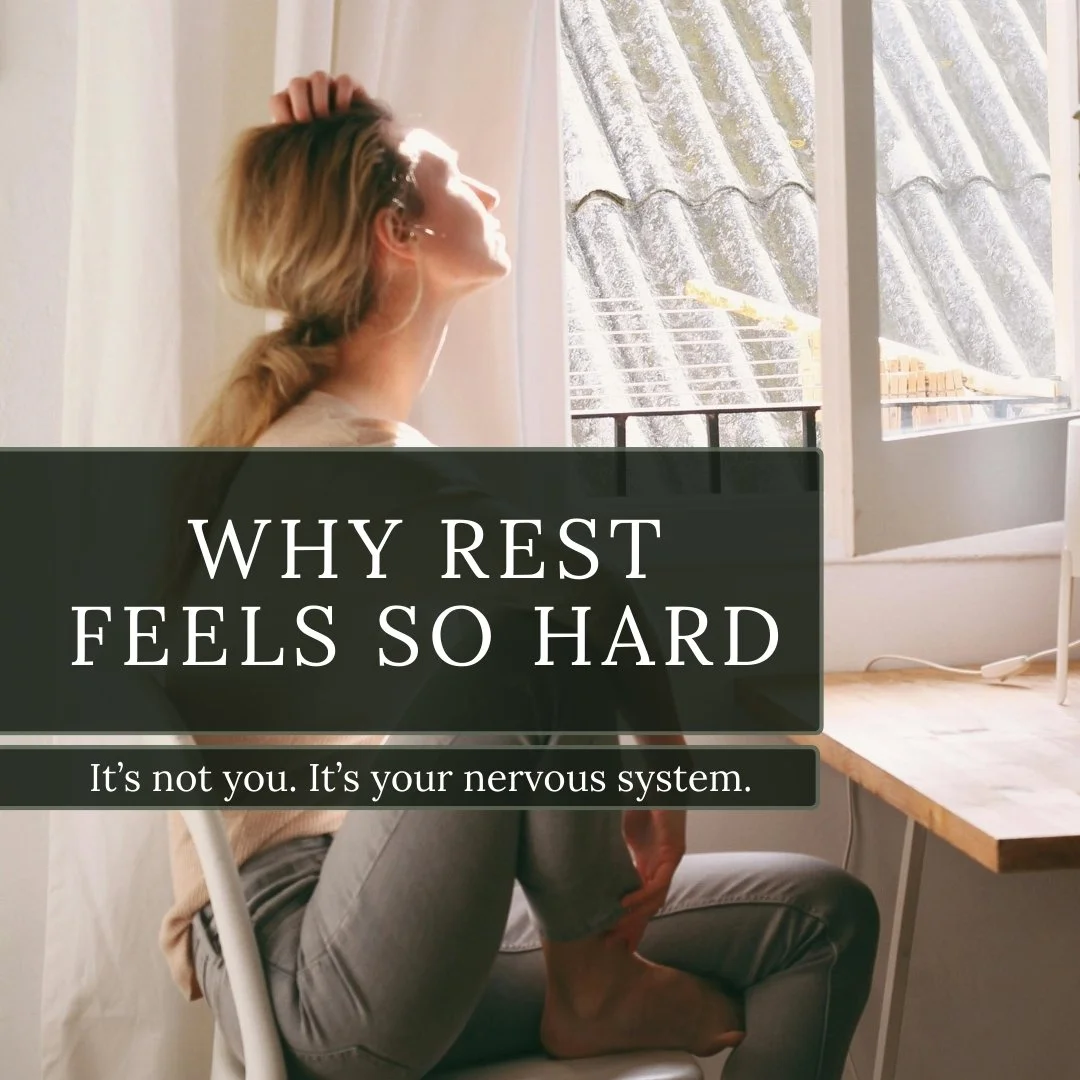
Why Rest Feels So Hard: It’s Not You… It’s Your Nervous System (and Our Culture)
Rest doesn’t feel hard because you’re doing it wrong. For many people, slowing down activates anxiety, tension, or restlessness because the nervous system never learned that rest was safe. In a culture that rewards urgency and constant stimulation, choosing stillness can feel unfamiliar — and even threatening.
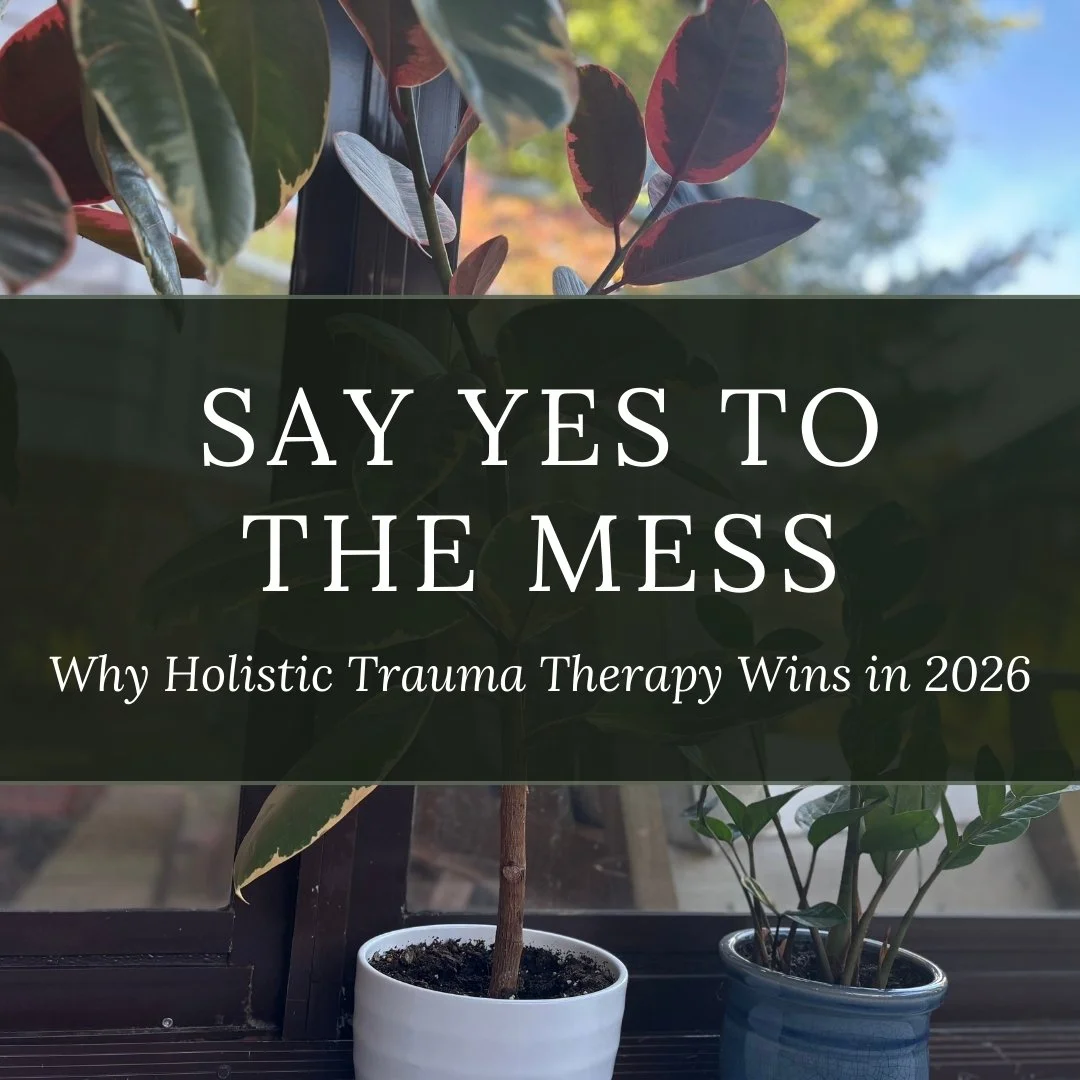
Say Yes to the Mess: Why Holistic Trauma Therapy Wins in 2026
2026 feels like a threshold year. Not because the calendar changed, but because so many of us are tired of pretending we’re fine while quietly unraveling inside. This reflection explores why holistic, trauma-informed therapy isn’t about fixing or transforming yourself, but about integration, permission, and learning to feel safe enough to be fully human. It’s an invitation to say yes to support, yes to your nervous system, and yes to the slow, honest work of becoming.
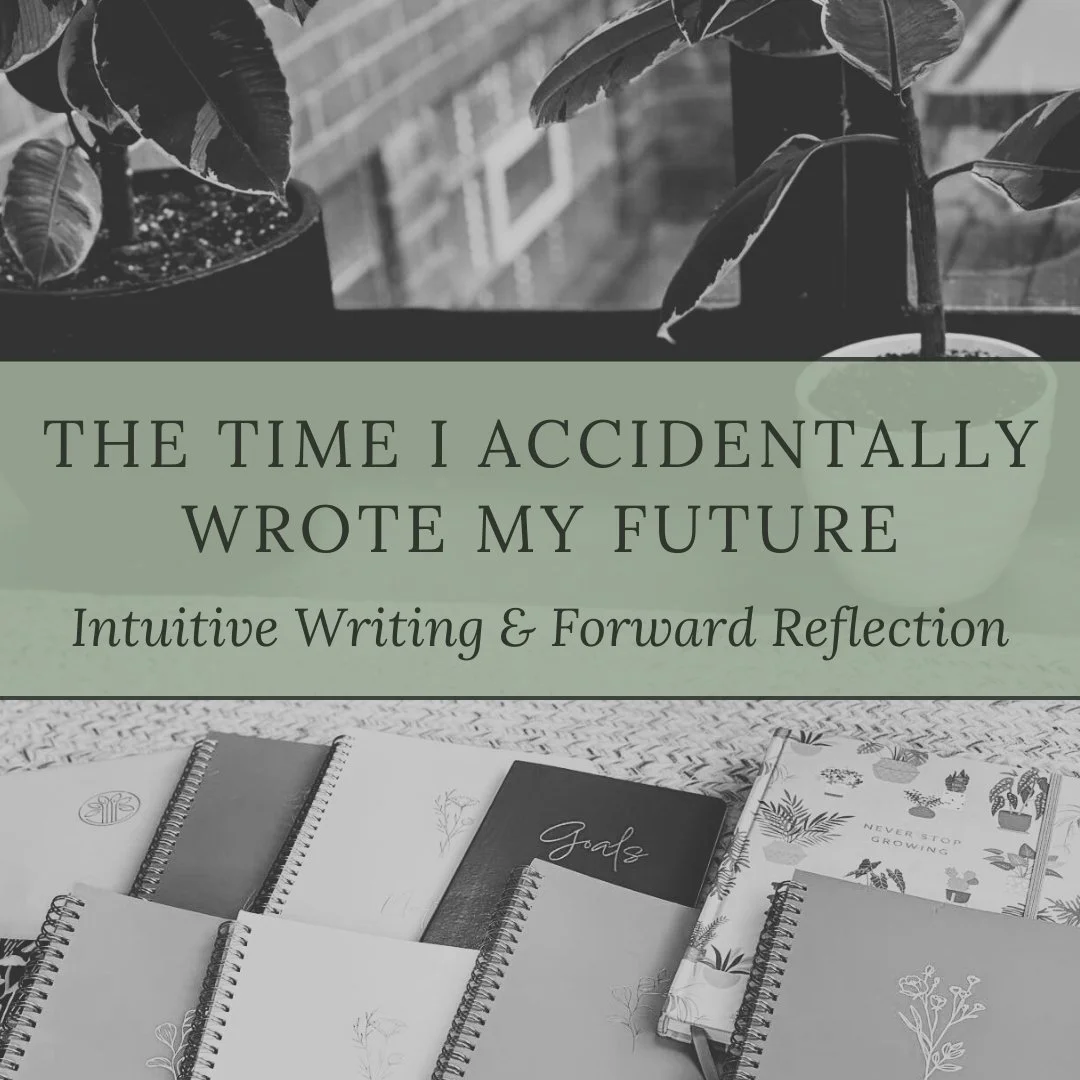
The Time I Accidentally Wrote My Future: Intuitive Writing & Forward Reflection
What started as raw, unfiltered writing during a difficult season quietly became a map for the year ahead. In this reflection, Mallory shares how intuitive writing—without intention, structure, or expectation—revealed people, experiences, and becoming before they ever arrived. A story about nervous system safety, listening deeply, and discovering that reflection doesn’t always look backward… sometimes it remembers the future.
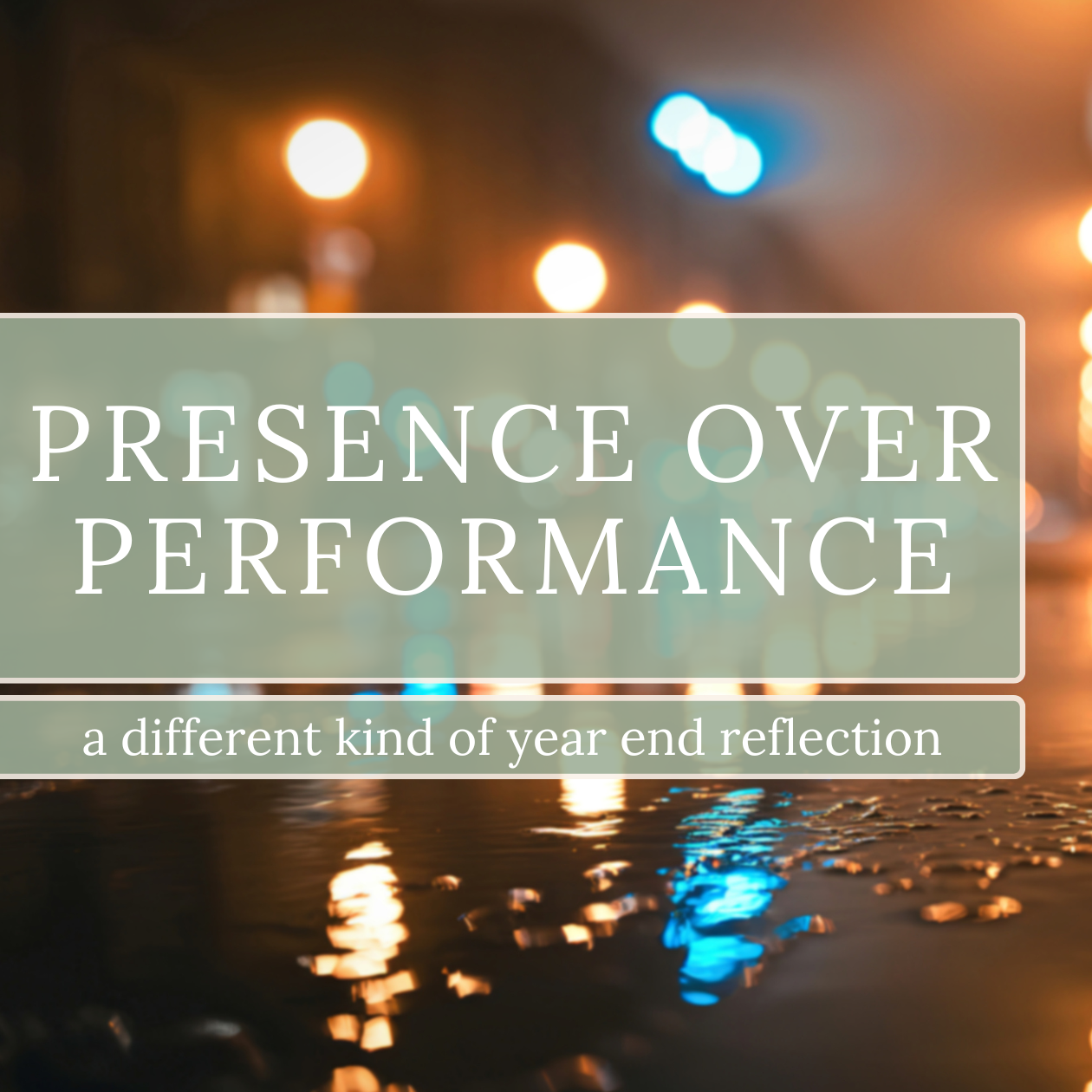
Presence Over Performance: A Different Kind of Year‑End Reflection
This is not your average anxiety or trauma therapy holiday blog. You won’t find tips on how to survive family dinners or navigate holiday stress. Because honestly, holidays are tricky for most of us, and sometimes the most legit thing we can do is stop trying to “navigate” them at all.
Instead, I want to offer something different: affirmations. Gentle reminders that being here, being alive, is enough.
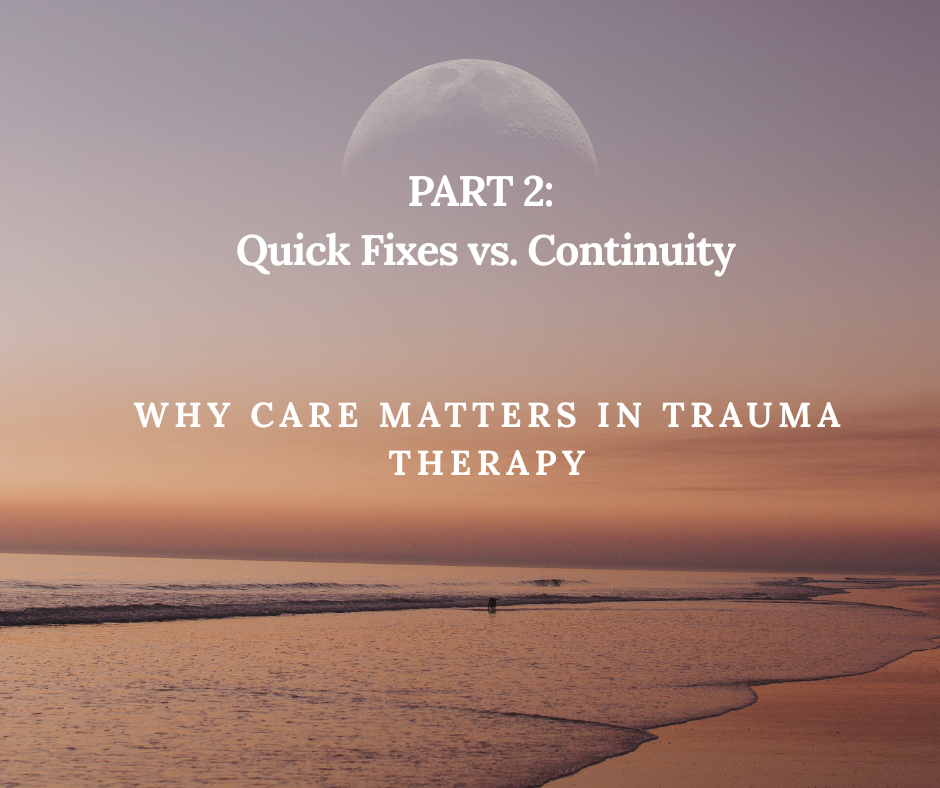
Part 2, Quick Fixes vs. Continuity: Why Care Matters in Trauma Therapy
In the second of this two-part reflection, Mallory explores the true depth of why continuity of care matters in trauma therapy and why we are drawn to the quick fixes.

Part 1, Beyond Buzzwords: What Healing Really Means in Trauma Therapy
Healing isn’t a buzzword. It’s a layered, relational, non-linear process. In this two-part reflection, Mallory explores the true depth of healing and why continuity of care matters in trauma therapy.

The Ego Isn’t the Enemy, But It Sure Is Loud
A trauma-informed reflection on how the ego protects, blocks intuition, and shapes our inner world and how we can meet it with compassion instead of fear.
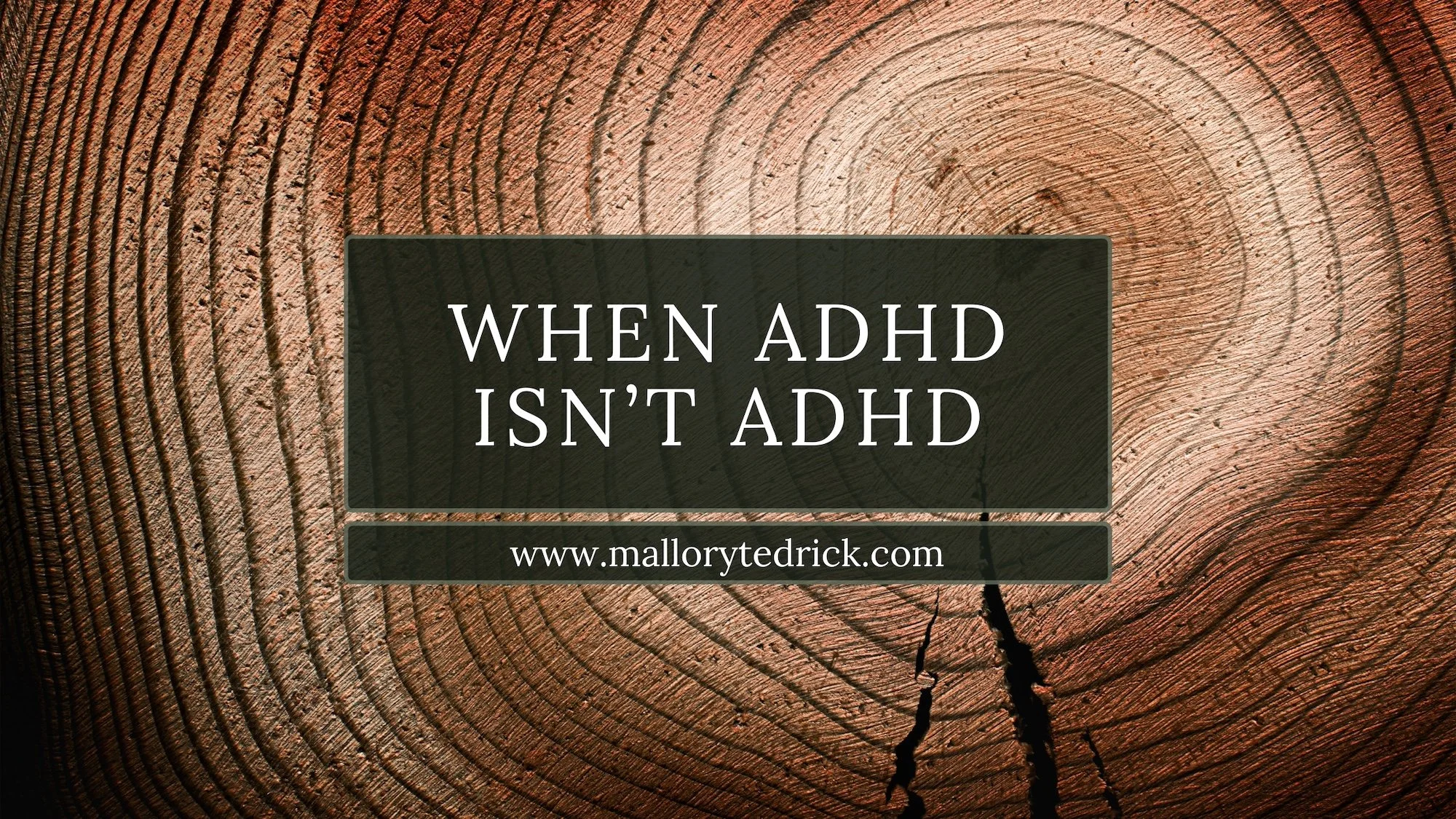
When ADHD Isn’t ADHD: The Quiet Mimicry of Anxiety and Trauma
Many clients wonder if their struggles with focus, restlessness, or racing thoughts are ADHD. While that may be true, these same symptoms can also stem from anxiety shaped by trauma. In this post, therapist Mallory Tedrick explores the overlaps between ADHD and trauma-related anxiety, and why compassion and curiosity are key to understanding what’s really happening beneath the surface.
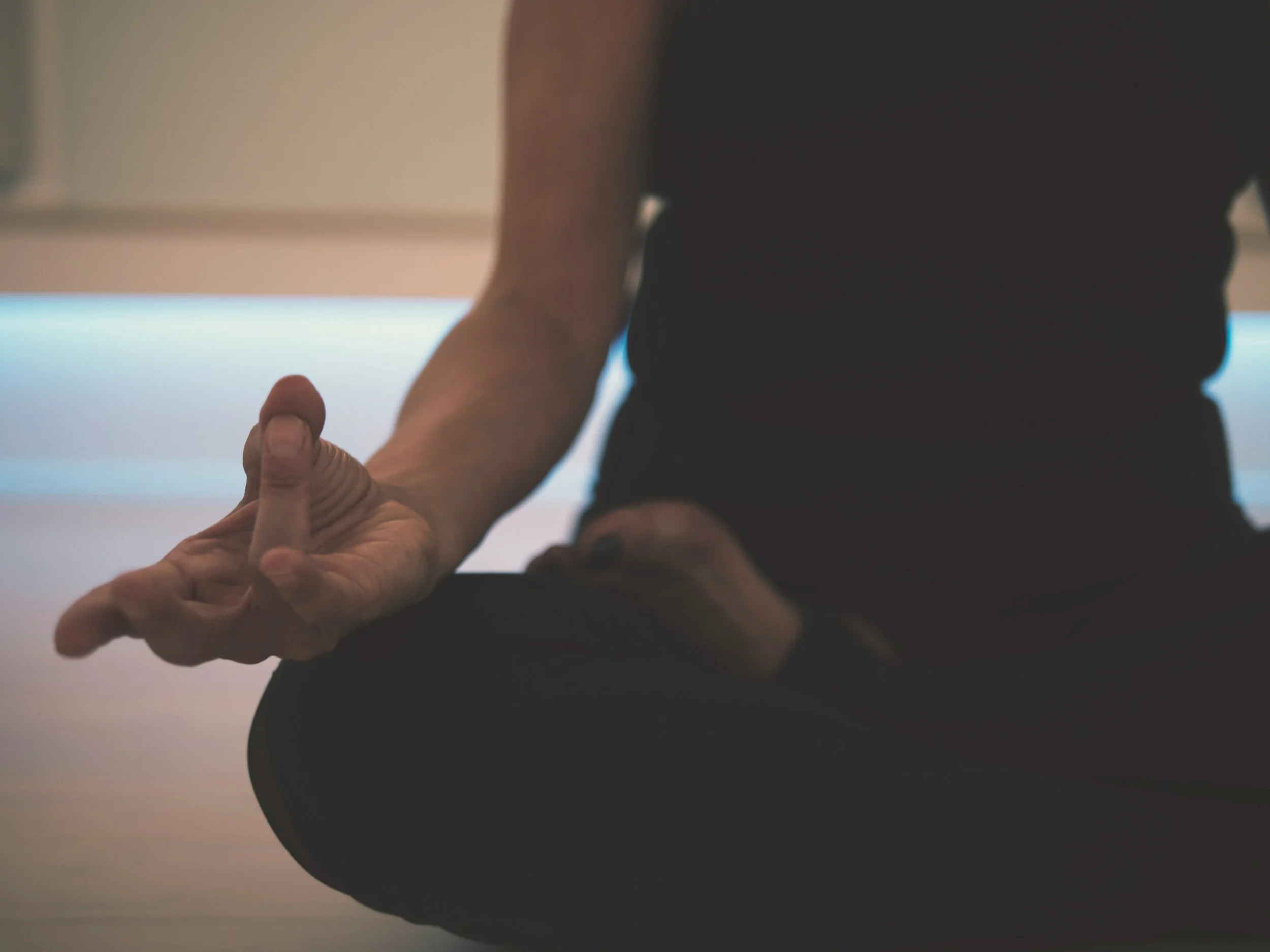
The Roundness of Healing: The Soul’s Language
Healing is rarely linear it’s a round, unfolding process of remembering who we are. In this reflection on spiritual integration therapy, Mallory Tedrick, LPCC, explores how the language of the soul can guide trauma healing beyond words. Through somatic awareness, mindfulness, and holistic practices, she invites clients to connect body, mind, and spirit to rediscover meaning after anxiety, depression, or PTSD. This approach to holistic trauma therapy honors both the science of psychology and the mystery of the sacred within.

The Roundedness of Healing: Attuning to Emotion Through Embodied Practice
There’s often that moment in sessions when words begin to falter.
The pauses, the searching for language, and the slumping of the shoulders. The breath shortens and gaze shifts.
And I know: the body is speaking.
I’ve come to trust that the body often knows before the mind does. It holds stories, signals, and truths that language can’t always reach. That’s why embodiment and emotional attunement are central to my integrative approach. They’re not add-ons…they are the bridge.

The Roundedness of Healing: Education as Repair
When clients begin their “healing” journey, many arrive carrying stories or beliefs about themselves that were never fully named, let alone understood. They’ve felt:
“too much” or “too sensitive” or “not enough”
What they didn’t know was that their nervous system was simply doing its best to protect them.
This is where education becomes repair.

The Roundedness of Healing Where Wholeness Begins: My Integrative Foundation in Trauma-Informed Care
We live in a world that often asks us to either compartmentalize or detach. To detach our body from mind, emotion from logic, and healing from daily life.
Pause and allow that to sink in.
Having experienced this large ask myself, I continued to find myself returning repeatedly to the roundedness. The wholeness. The quiet truth that healing is not linear, and it’s never just one thing.
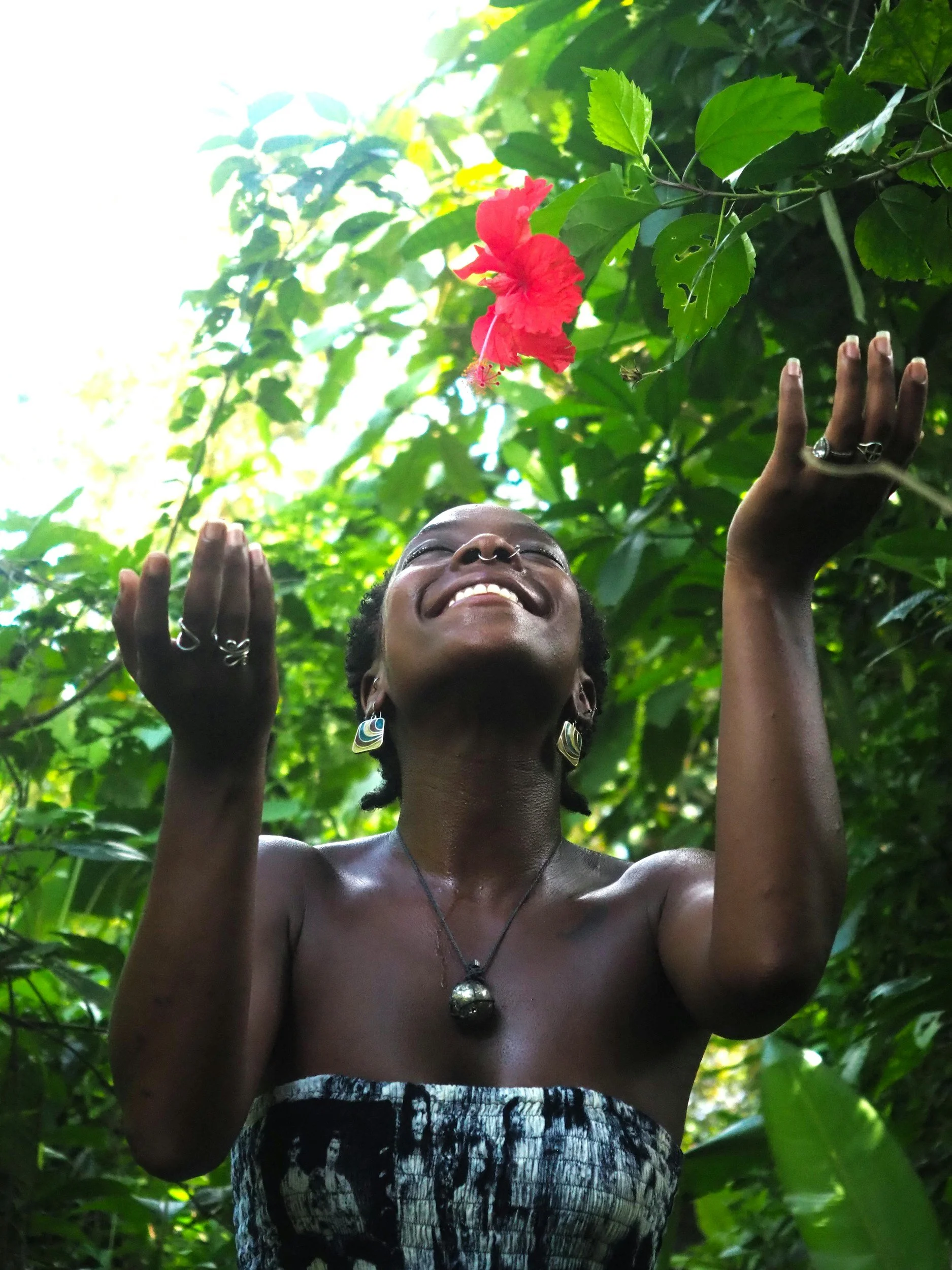
The Quiet Link Between Surrender and Gratitude
Life rarely unfolds exactly as we imagine. When plans shift and outcomes disappoint, surrender can feel like loss — yet it also creates room for gratitude to surface. In this post, I share my own story of sitting with uncertainty and discovering the quiet grace that lives between effort and outcome.
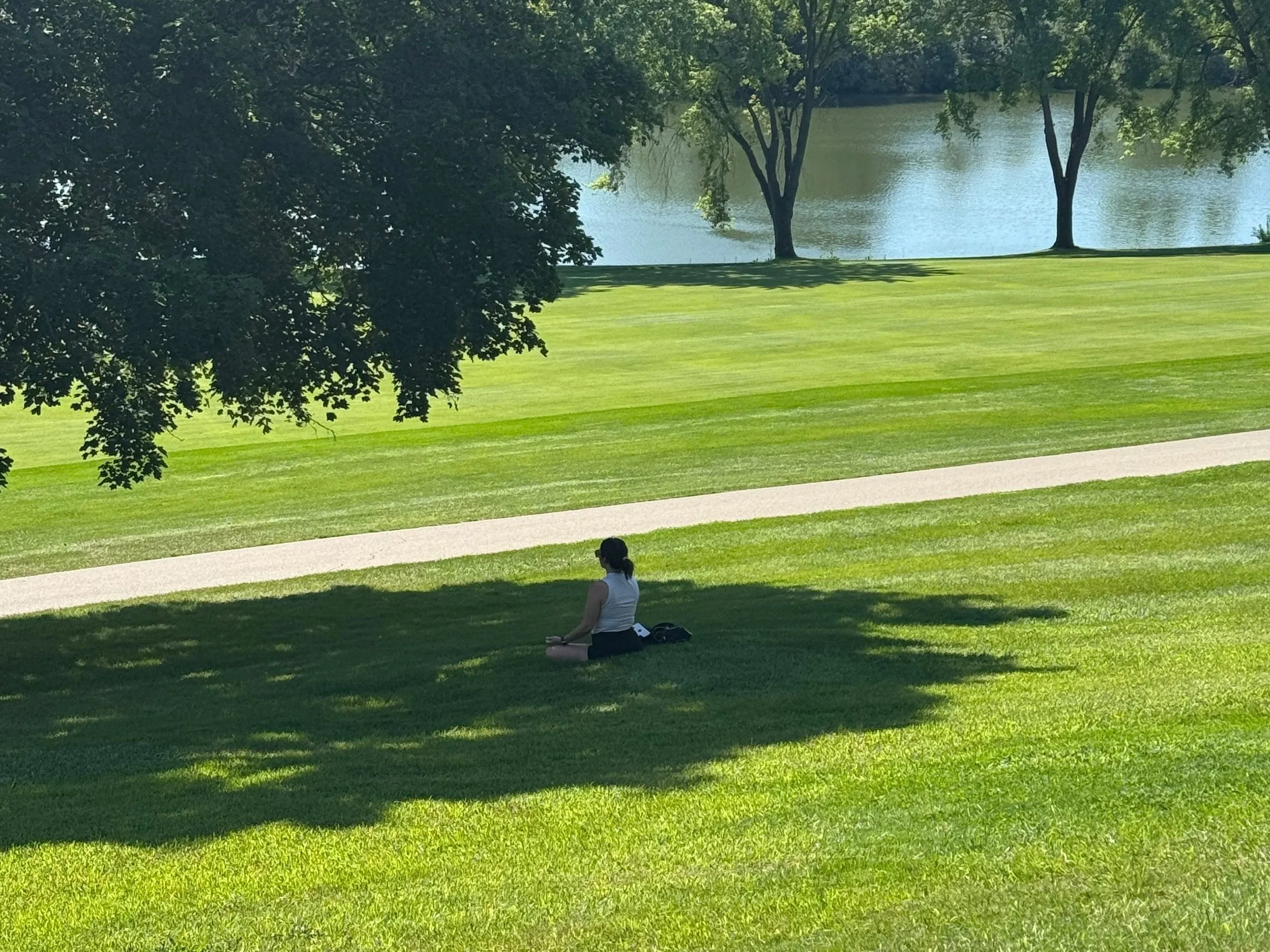
Mental Health and Spirituality: Two Paths, One Journey
Our mental health and spirituality are not separate paths but two threads of the same journey. Mental health provides resilience and safety, while spirituality offers meaning, presence, and hope. Together, they create a foundation for healing and wholeness. When we regulate the nervous system, release trauma, or engage in practices like meditation, prayer, or time in nature, we open the door to deeper connection—with ourselves and with something greater.

Turning Inward Before Outward
Do you wake up already bracing?
Before your feet hit the floor, before the coffee brews, before the kids burst in with their pitter-patter and the pets demand their morning rituals—your stomach is already in knots. Your heart races. The day hasn’t begun, and yet your nervous system is already sprinting.
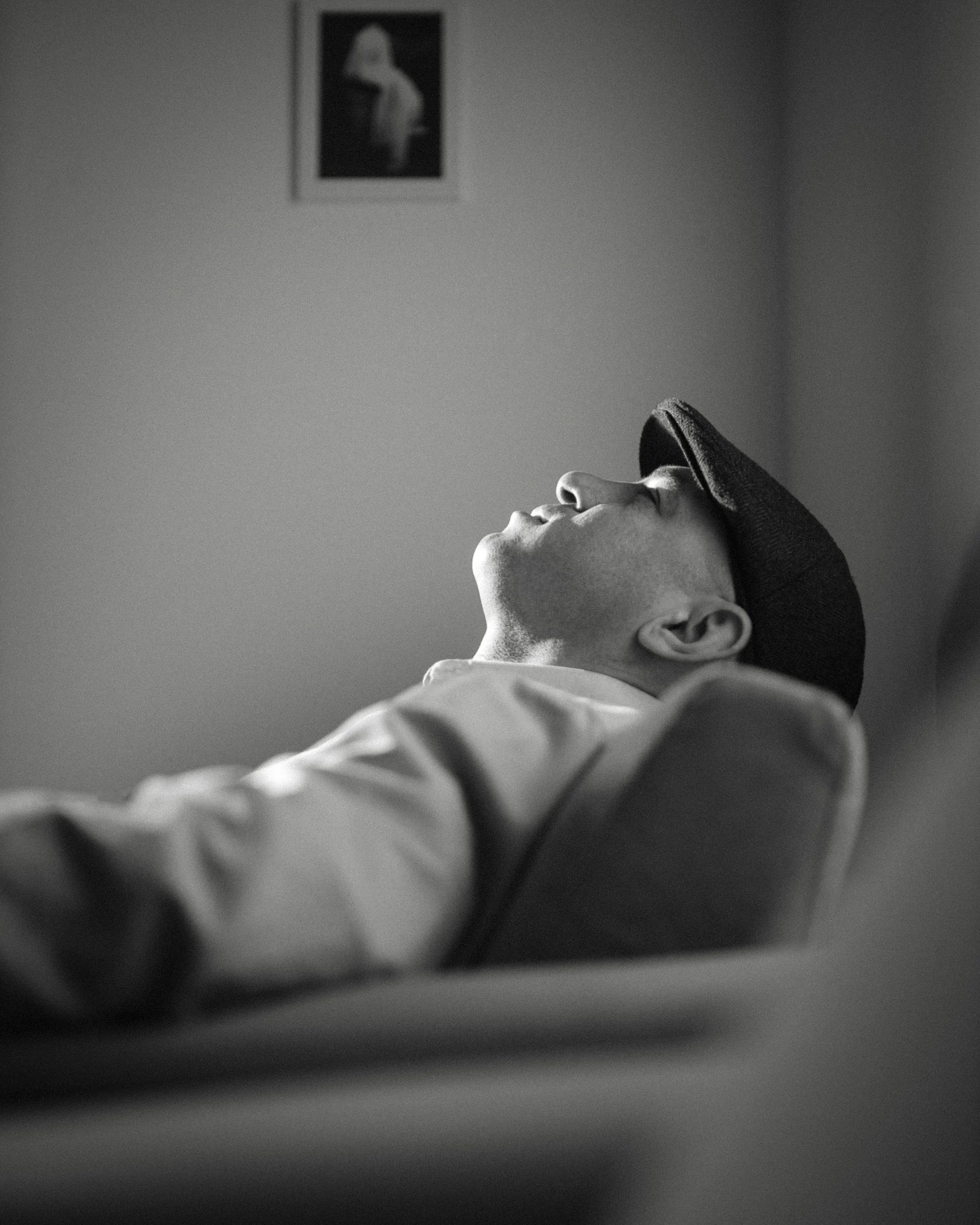
Hypnotherapy Unveiled: A Gentle Path Back to Yourself
I’ve heard it all.
“Are you going to swing a pocket watch and say, ‘You are getting sleeeeepy?”
“Will I end up doing something embarrassing?”
“What if I forget everything I say?”
When I share that I use hypnotherapy in my mental health therapy practice, people often picture stage shows or someone clucking like a chicken. The word “hypno” tends to stir up confusion or fear. But here’s the truth: hypnotherapy is one of the most misunderstood and deeply powerful tools I’ve ever worked with (personally and professionally).
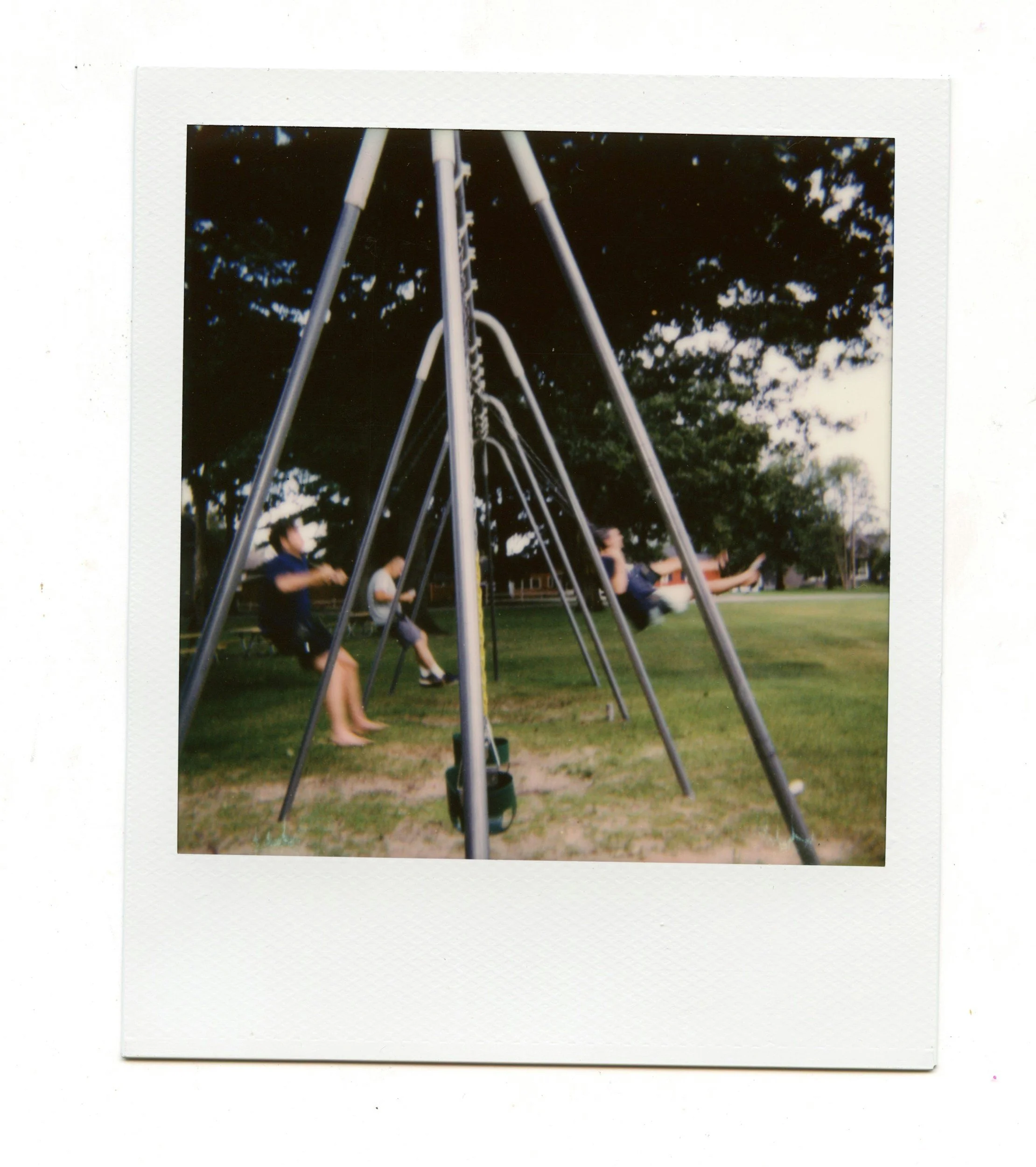
Adult Play IS Productivity
Lately, I’ve been allowing myself to just be—to breathe, to rest, and to enjoy the little things without pressure. Carrying that practice into my weeks has been a gift. Of course, planning ahead helps me check things off my list, but I’m also learning the value of slowing down and being present.
A few weeks ago, I had an experience that reminded me why play matters
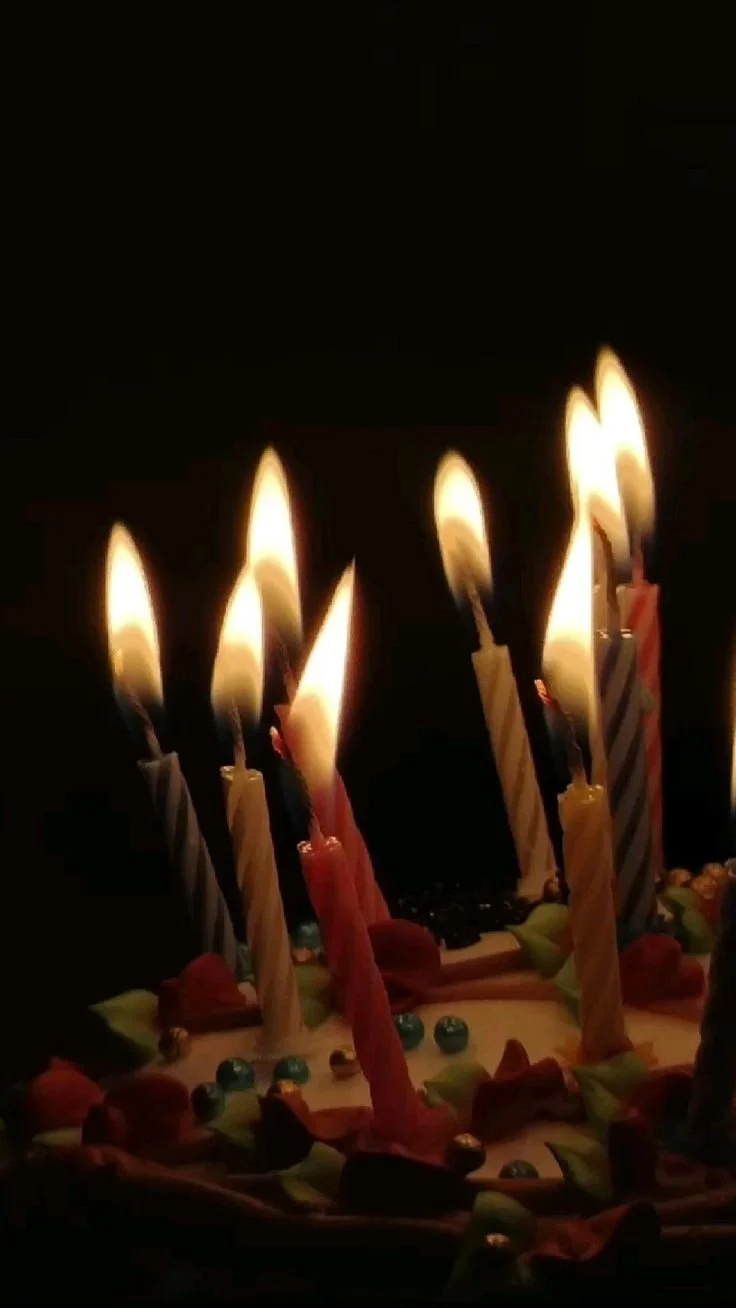
From Dread to Delight: A Birthday Reflection on Self-Worth
For years, birthdays felt like a spotlight I didn’t want to stand under. I felt discomfort at the thought of someone wishing me a happy birthday, gifting me a present, or trying to make the day ‘about me.’
The idea of celebrating myself felt uncomfortable, and, upon reflection, even undeserved. My inner critic would say things like:
“I’m nothing special.”
“What is no one else celebrates me.”
“I don’t want the attention.”
